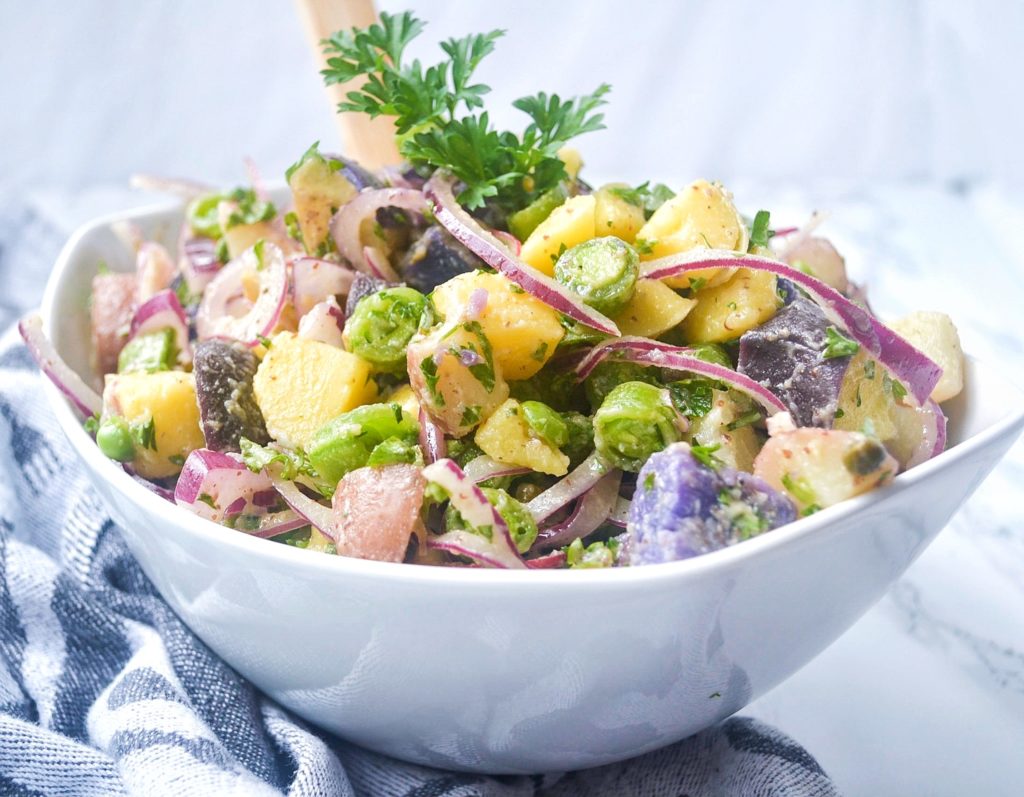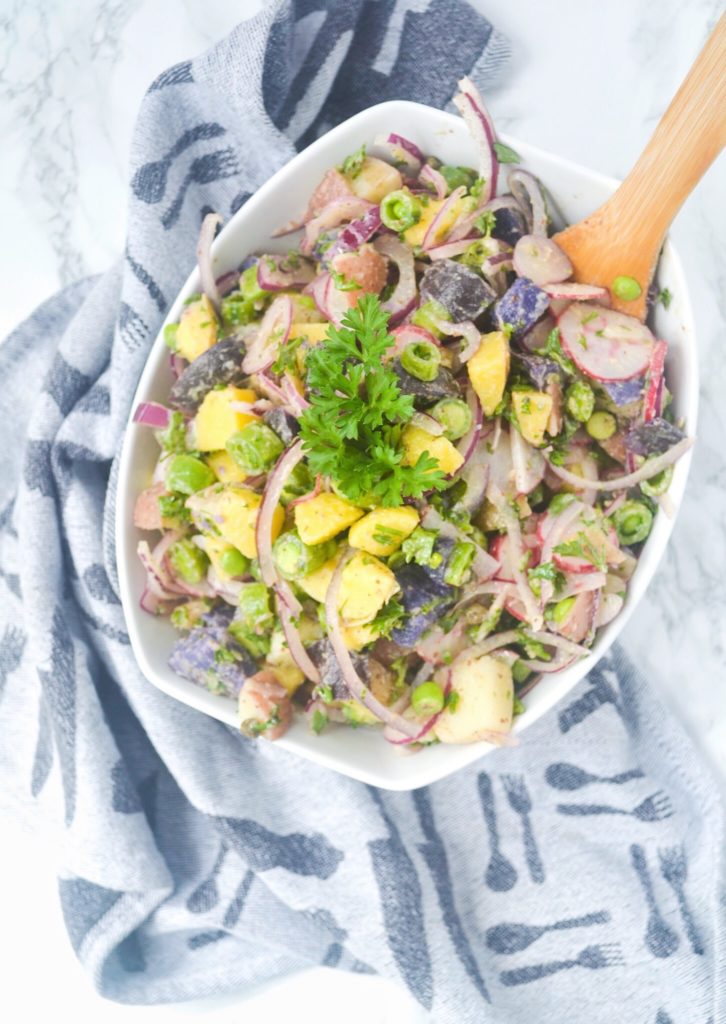welcome to the blog, let's
debunk the nutrition junk
What are resistant starches let alone a “super starch”? It’s almost ironic to call something a “super starch” as most people to this day continue to demonize starches aka carbohydrates. Now that I’ve talked in circles you may realize why it is so easy for nutrition world to get so confusing. As always let’s break down the science together or…

Back to the Basics
Starches are long chains of glucose molecules that you can find in grains, rice, potatoes, etc. Take note that your gut NEEDS starches to allow for proper functionality and motility of the gastrointestinal tract. This is why I reiterate the fact that you should never single handedly cut out entire food groups (i.e carbs) from your diet because all foods provide functionality, energy, and nutrients for our bodies every……….single………day!
Why Do We Want “Gut Friendly” Foods?
Recent research has found that roughly 70% of our immune system exists within our gut. Not only that, 80% of our Immunoglobulin A (aka antibody) is produced in the lining of our digestive tract! That alone makes it easy to understand what a driving force the gut is in our immune function. (1)
To keep our gut microbiome thriving regularly we want to feed the “good” bacteria to keep it nice and happy. This can look different for everyone considering there are lots of different foods outside of resistant starches which also contribute to gut health. I have said this before, but just a gentle reminder that having a large variety in the food choices you make is key to supporting not just your gut health but for your own body as well!
Fun Fact:
Humans have more bacterial cells than “human” cells with some populating your nose and ears, but the majority live and thrive in the gut.
What are Resistant Starches?
Resistant starches are carbohydrates that resist digestion in the small intestine and move to the large intestine where they get fermented. Meaning, the fibers from resistant starches when broken down via fermentation can provide gut benefits in the large intestine. As the fibers ferment they become the ultimate source of prebiotics which feed the “good” bacteria in our gut. (2)
There are 4 known types of resistant starches RS Type 1, 2, 3, 4.
RS Type 1: Contain a thick cell wall making it impossible for the human body to break down further. Examples include coarsely ground or whole grain kernels.
RS Type 2: Can be found in raw potatoes, unripe (green) bananas/plantains. None of these are items we as humans commonly eat therefore I believe this to be a bit of a stretch to try and incorporate regularly. Unless you’re a green banana fan, then go for it!

RS Type 3: Similar to Type 1, but is only found in foods that have been cooked and then cooled via freezing or refrigeration. The reason for this is that once heated it becomes easier for the small intestine to digest and therefore won’t make it down to the large intestine to feed the “good” bacteria.
**Side note: RS Type 3 can be cooked, cooled, then reheated and still maintain the resistant starch in it. Say hello to leftovers!
RS Type 4: A synthetic form of resistant starch derived from corn. Also another weird one to try and incorporate
The different types of resistant starches above are there to give you insight into what exists and how they all provide benefits. However, I would not go out of your way to try and get RS 2 & 4 types into your commonly consumed foods.(2)
What Foods Contain Resistant Starch?
Examples of Food Sources:
- Rice (cooked & cooled)
- Beans
- Oats (Try My Overnight Oats Recipe!)
- Peas
- Lentils
- Barley
- Green Bananas
- Unripe Plantains (not that great tasting…tbh. Wouldn’t recommend.)
- Potatoes (cooked & cooled, try the Fall Veggie PEARed Salad)
- Whole grain pasta (cooked & cooled)
- Potato Starch (used in baked items sometimes)
I’ve developed a delish potato salad based on the original one we would have ALL the time as little kids! Looking at the different resistant starches this one will have RS type 3 in it since the potatoes will be cooked then cooled to make it a “salad” with all the other veggies that get packed into it. Check out the recipe below!
Gut Friendly Potato Salad

A simple and easy weeknight salad that will make it all the way down to your gut to let it thrive!
Le Greens
- 1-1.5 Lb Rainbow Fingerling Potatoes ((about 250-500g))
- 2 Cups Sugar Snap Peas ((cut into 1-inch pieces; ~225g))
- 1 Bunch Radishes ((thinly sliced; easiest with a mandolin))
- 1/2 Red Onion ((thinly sliced; easiest with a mandolin//can buy prechopped))
- 2 Tbsp Fresh Parsley ((finely chopped))
- 1 Tbsp Capers ((finely chopped))
Le Dressing
- 1/4 Cup Extra Virgin Olive Oil
- 1 Tbsp Red Wine Vinegar ((can use white wine vinegar if you are out of red))
- 2 tsp Dijon Mustard
- Salt & Pepper ((to your liking))
Place potatoes in a pot and cover them with cold water.
Bring the water to a boil, then reduce heat to a simmer for about 10 minutes. Stick a paring knife in one of the potatoes before removing. If there is no resistance they are done.
Run the potatoes under cold water for a little bit and then place them in a bowl in the fridge to let them cool.
While the potatoes are cooling off cut the sugar snap peas, thinly slice the radishes, and red onion, chop the parsley, and finely dice the capers. I like to place the parsely in a mug and use scissors to chop them up quickly.
Make the dressing by pouring all the dressing ingredients into either a jar with a tight lid to shake it up OR use a small bowl and use a whisk to mix all the ingredients together.
Remove the potatoes from the fridge and cube the potatoes. Place all of the vegetables in a bowl and add the dressing. Use a wodden spoon to fold the veggies so that everything gets coated in the dressing.
Citations:
1.Vighi, G, et al. “Allergy and the Gastrointestinal System.” Clinical and Experimental Immunology, Blackwell Science Inc, Sept. 2008, https://www.ncbi.nlm.nih.gov/pmc/articles/PMC2515351/.
2.Birt, Diane F, et al. “Resistant Starch: Promise for Improving Human Health.” Advances in Nutrition (Bethesda, Md.), American Society for Nutrition, 6 Nov. 2013, https://www.ncbi.nlm.nih.gov/pmc/articles/PMC3823506/.